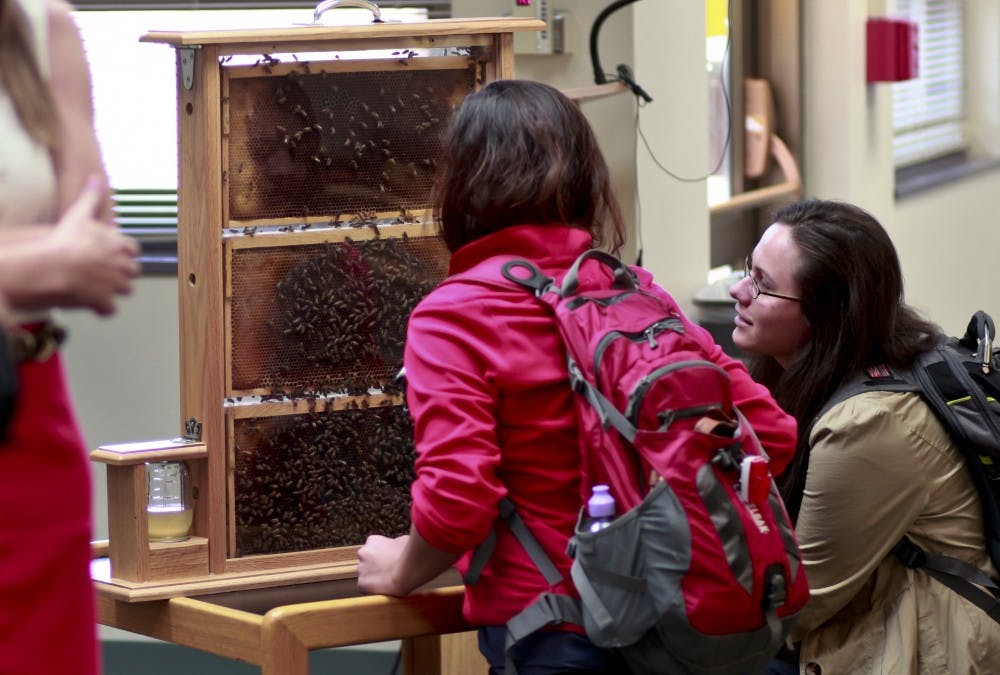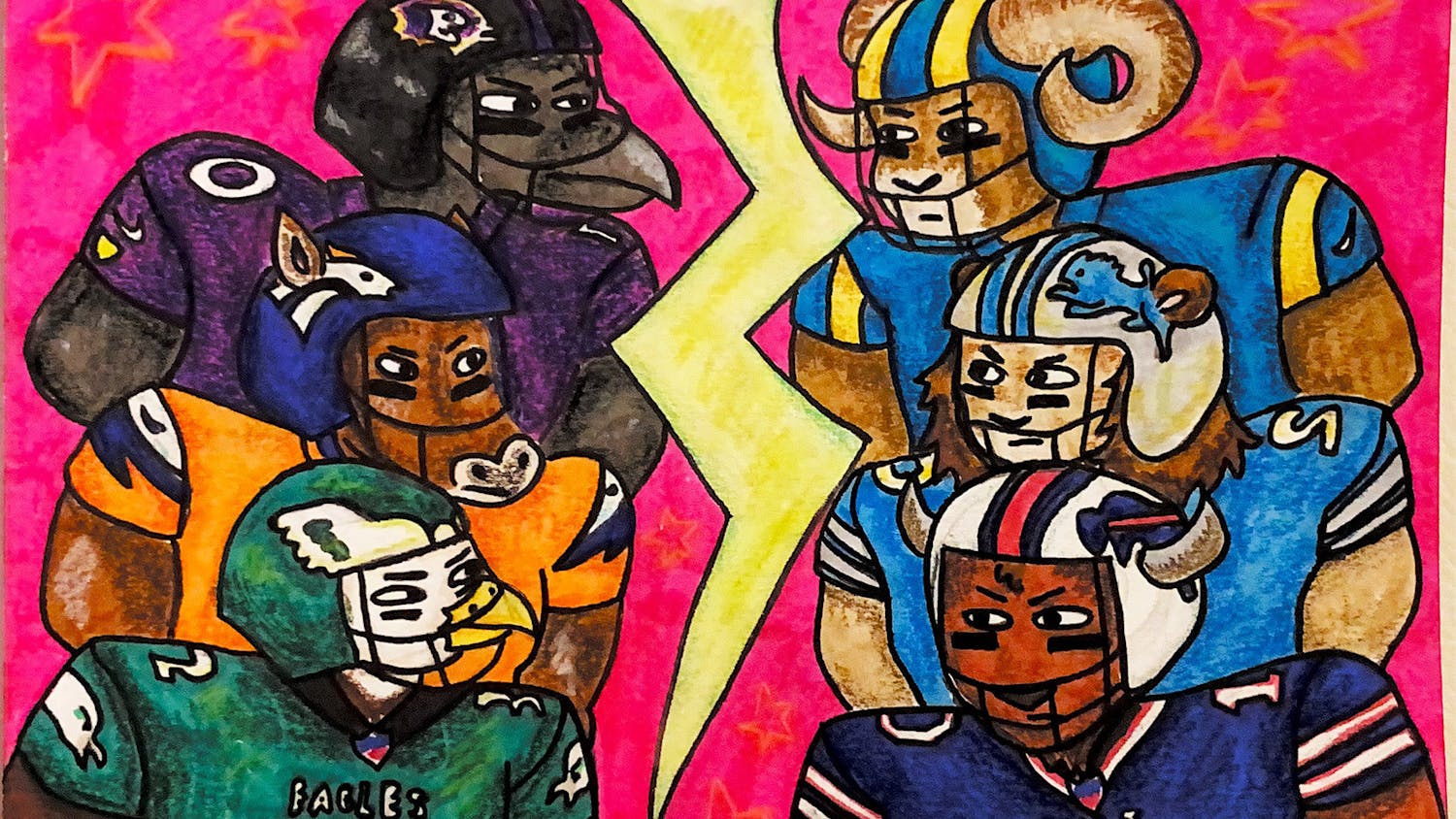culture@dailylobo.com
Anyone who’s ever been stung by a bee would probably think twice before purposefully hanging out with a swarm of them. But in the “Zen and the Art of Beekeeping” class at the UNM Honors College, students meet every week to discuss their newfound passion for honeybees, hives and everything in between.
The class, taught by Monica Kowal, focuses on what she describes as an ethnographic study of urban beekeeping.
“We’re learning about this whole new culture. We study beekeepers and their whole way of life, and these ways of living and sustaining yourself off bees and honey,” said student Celestina Martinez.
It’s not only about small, backyard hives, though. The class studies bees as part of larger economic and agricultural systems, and the problems the bees face.
“Before this class I was just not aware — not even just about bees, but about GMOs, sustainable growing, how monoculture growing is the worst thing we could be doing because it depletes the land so thoroughly,” said student Brianne Clarkson. “These are things we hear about maybe once in high school and then never again.”
Clarkson explained local “hobbyist” beekeepers intersect with global agricultural systems in the phenomenon of Colony Collapse Disorder. CCD is when an entire colony of bees leaves the hive one morning and disappears completely. It is thought to be caused by a group of pesticides called neonicotinoids, which could be causing the bees to become so disoriented they are unable to find their way back to the hive. CCD has only affected commercial beekeepers so far, and has not appeared in New Mexico yet.
“It affects the economy because when you don’t have the pollinators, you can’t grow any produce, so it’s a big problem,” student Elise Lopez said.
Clarkson said the class has left her with a strong awareness that private, urban beekeeping might be the only solution if CCD continues to plague American commercial beekeepers, who she said lose 50 to 70 percent of their bees every time they pollinate.
The class discussed how certain common foods, particularly almonds, could become impossible to cultivate in the near future unless more sustainable and bee-friendly growing practices are instituted. These practices could range from eliminating pesticides to planting more diverse crops in an area to provide bees with food.
“There are so many people who don’t know about this, so we’re learning about how we can help people to become aware and how we can help the situation,” Lopez said.
Kowal said she started the class not only because she likes bees, but to see if others were as concerned as she was.
Get content from The Daily Lobo delivered to your inbox
“This is a critical time for honeybees,” Kowal said. “I pitched this class because I’m passionate about it, but also as a gauge to see if students would be interested, and fortunately, they are.
The fact that students are involved and excited about it is really inspiring to me.”
Kowal and her husband have been keeping bees for seven years now. The number of hives in their backyard has grown from one startup hive to 10 thriving hives. She says in those seven years, she has watched the beekeeping population in New Mexico — and especially in Albuquerque — go through a renaissance.
“When I first started going to New Mexico Beekeepers meetings, there were maybe 20 or 30 people, and now it’s grown to like 200 people,” she said.
She noticed at those meetings there was a lack of young people around, which was her original motivation to start the class. She said the initial investment in beekeeping equipment might be a deterrent to young people interested in beekeeping. She was also concerned that many people who want to keep bees don’t realize how much education is necessary to keep colonies safe and healthy.
“I really think it should be a free endeavor. I don’t think students should have to pay to learn a vocation or a skill,” Kowal said. “If I can get college students and then they can teach younger people, it can become this big pay-it-forward type of endeavor.”
That forward-paying potential was realized when her students approached her about starting a beekeeping club on campus.
Currently in the chartering stage, the Student Beekeepers Club hopes to share what knowledge it has acquired with other UNM students and the Albuquerque community.
“We have a couple of different missions,” chartering member Jessica Gorley said, “One, of course, is to get bees safely on campus, and the other is to provide awareness to people. A lot of people don’t know about them or they’re scared, and we want to get rid of that fear by holding events about bees to give public knowledge. We’ve also talked about outreach with the public or to children in schools.”
The title of the class is an indicator that the art of beekeeping could be about a lot more than botany and bee stings.
“I never thought anyone could become attached to an insect, either emotionally or spiritually, but these people totally do,” said Clarkson. “It’s enlightening how (beekeepers’) lives were troubled or chaotic before, and then they started keeping bees and it gave them a sense of direction and calm.”






